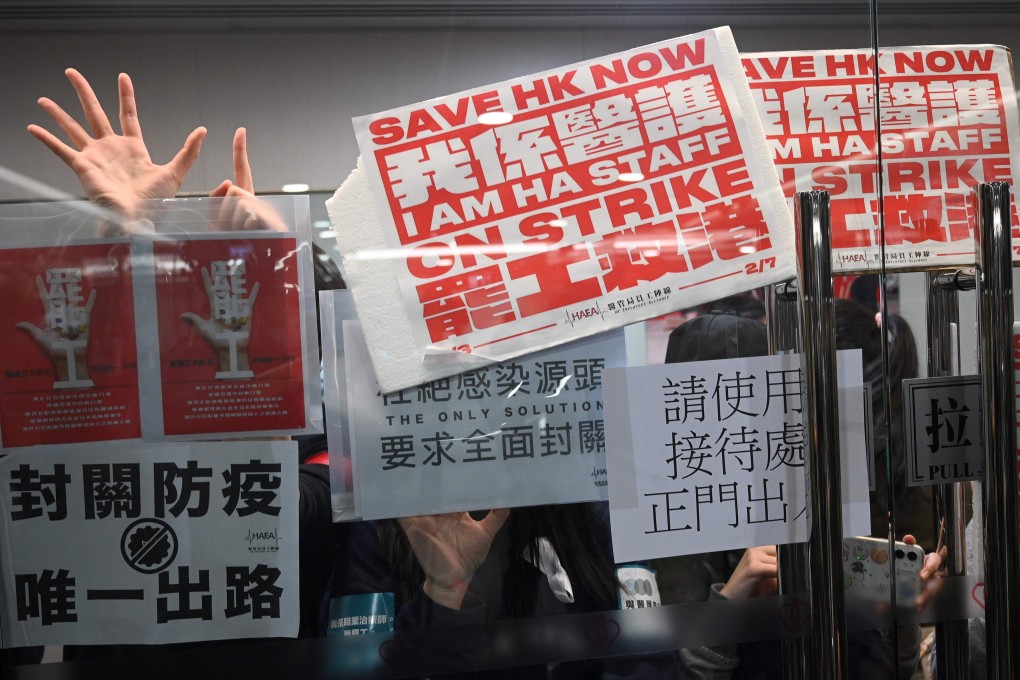Advertisement
Opinion | Coronavirus outbreak: Hong Kong’s medical workers on strike could have been left with a bitter pill to swallow
- Strikes are legal under a restricted definition which the agitating medical workers could have breached. They should not pave the way for the chief executive to declare a public emergency to deal with the new coronavirus
Reading Time:4 minutes
Why you can trust SCMP

If anyone harbours any illusions that Hong Kong’s months-long, anti-government protests have died down in the wake of the novel coronavirus, he or she cannot be more mistaken. Although the protests no longer dominate headlines, road blockages, scuffles between protesters and the police and the hurling of petrol bombs continue to occur.
Since Lunar New Year, at least five home-made bombs have been found at railway stations, border control points and even hospital facilities, after threats had been made on online platforms, in a manner akin to tactics adopted by terrorists.
The fight against the government then moved insidiously to the medical front. On February 1, the Hospital Authority Employees Alliance, a newly established trade union, which boasted 13,000 members at the time, voted to go on strike from February 3, unless Hong Kong’s chief executive came to the negotiating table and accepted their demand for a “complete closure” of all control points to “save Hong Kong”.
Advertisement
As at 7pm on February 5, 5,100 employees were recorded absent, including 300 doctors, 3,100 nurses and 1,000 allied health professionals, accounting for roughly 5 per cent, 12 per cent and 12 per cent respectively of the Hospital Authority’s total strength.
The alliance demanded that all who enter Hong Kong, other than Hong Kong residents, be denied entry and all Hong Kong residents should be quarantined on their return. But the group never explained why it was necessary to close all control points, including the airport, where drastic cutback of air services between Hong Kong and mainland cities had already reduced mainland arrivals to a trickle.

On February 7, the alliance voted to end the strike, but not before briefly occupying key floors of the Hospital Authority headquarters.
Advertisement
Select Voice
Choose your listening speed
Get through articles 2x faster
1.25x
250 WPM
Slow
Average
Fast
1.25x
